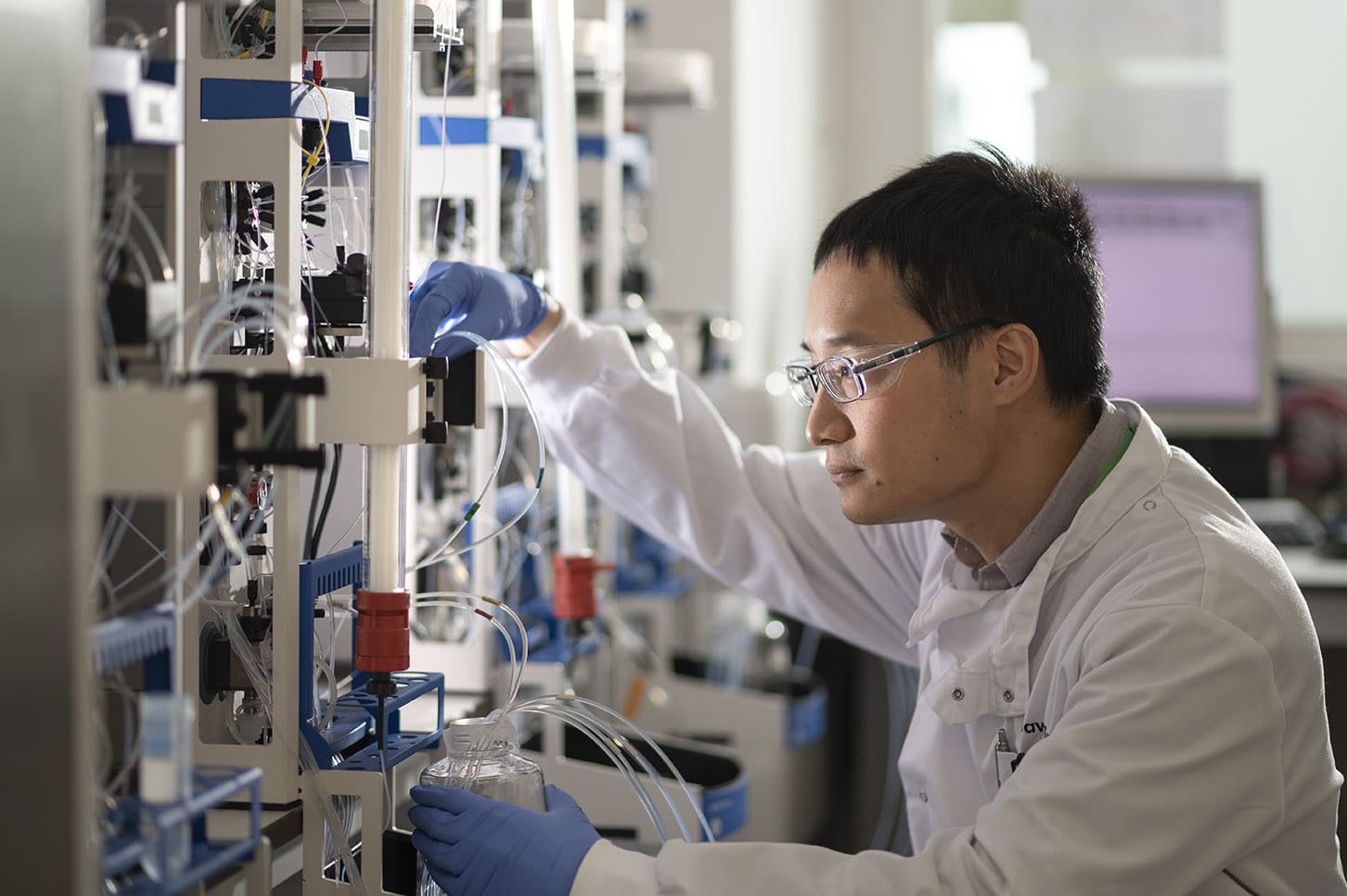MRC Technology, a medical research charity, today announced it has licensed an antibody to Newsummit Biopharma, a leading China-based drug development process solutions provider, for development of a novel therapeutic for treatment of Hepatitis C virus (HCV) infection. The antibody was humanised by MRC Technology scientists, and originated in the laboratory of Prof. Arvind Patel, of the MRC-University of Glasgow Centre for Virus Research (CVR).
HCV is a major cause of chronic liver disease. It is estimated that approximately 200 million people globally are infected with this virus, of which 25% live in China. Current worldwide projections estimate that HCV will be a major source of morbidity and mortality before the end of this decade. Although new promising treatments are now becoming available, there is as yet no vaccine and there is an unmet need to develop new targets for a broad and more effective therapy.
MRC Technology’s proprietary antibody humanisation technique and expertise has helped to bring several humanised antibody drugs to the market, including Keytruda®, Tysabri®, and Actemra®.
Dave Tapolczay, Chief Executive Officer, MRC Technology, said: “As a charity, MRC Technology focuses on areas where there are unmet patient needs, helping to get healthcare innovation to patients sooner and improving lives through science. Working with centres such as the CVR to find science with potential, then developing that science to the stage of licensing, is essential to impacting the translation of innovation into real patient benefit.”
Jun Ren, Chief Executive Officer, Newsummit Biopharma, said: “We have been working successfully with MRC Technology since 2009 to attract innovative therapies and diagnostics from the UK and Europe onto the Chinese market. With this license agreement, and through our unique collaborative innovation ecosystem, we aim to quickly tackle one of China’s major public health issues, as well as provide patients from Asia and the West with a valuable therapeutic option against HCV.”



